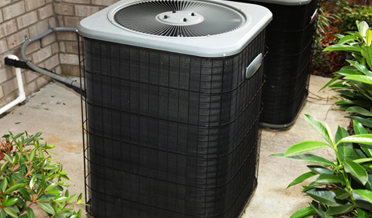4 Signs It Is Time For a New AC Installation
Is it Time for a New AC Installation?
Your HVAC system is a lot like your roof. They both function very well at what they were designed to do and they both function about the same amount of time. Honestly, you probably do not give either of them much thought . . . until they stop functioning properly. Every year, your HVAC system keeps you comfortable; cool in the summer, and warm in the winter.
New AC Installation is a large enough hit to the budget for most people that it requires a little planning and preparation. It might help to know a few indications that an aging system is nearing failure. Consider these tips:
1. How old is your system?
Most HVAC systems have a lifespan of 15 to 20 years, but for maximum efficiency, Energy Star recommends an HVAC system be replaced after 10 years.
Energy Star is a standard, set by the Energy Department, to define and identify energy efficiency. HVAC systems are hearty and durable, designed to be efficient with the best technology available at the time of manufacture.
Age is not the deciding factor in determining whether to replace your furnace or heat pump, but it is a factor. If your HVAC system is 10 years old or older and other factors are present, it is a good indication.
2. Does it sound old?
As an HVAC system ages, it will typically begin making new, unusual noises. Noises could stem from something as simple as a loose part or a control switch needing to be replaced. These noises should prompt you to make a service call to your HVAC professional.
You may notice a louder than normal hum coming from older motors and electrical components. Again, a technician will be able to tell you for sure whether it is normal wear, a serviceable problem, or in need of replacement.
3. How often do you need repairs?
To maintain your HVAC system, an annual preventative maintenance call from a technician is recommended. If you hear an unusual noise, or if the system is not working properly, it is normal to make a call to your New AC Installation professional.
However, if repair calls have become more frequent and the repairs are becoming more expensive, this is a good indication that the time has come for replacement.
There are some key components in your HVAC system that, should they fail, component replacement becomes very expensive. If you are aware of this fact, replacing the entire system might be preferable to component replacement.
4. What does your energy bill say?
This might be a little more subtle but keep an eye on your energy bills. Energy bills will increase due to price increases, but if your energy bill is going up while the price is not, it might indicate replacement needs to come soon. A failing system often results in rising energy bills; remember, the Department of Energy recommends early replacement for this reason.
Any one of these indicators is the indicator for replacement, but by watching for combinations of these factors, you will have time to prepare for system replacement.
Have questions about New AC Installation?
For more information about R.M. Mullinix and New AC Installation, schedule an appointment, or visit our New AC Installation information page.

